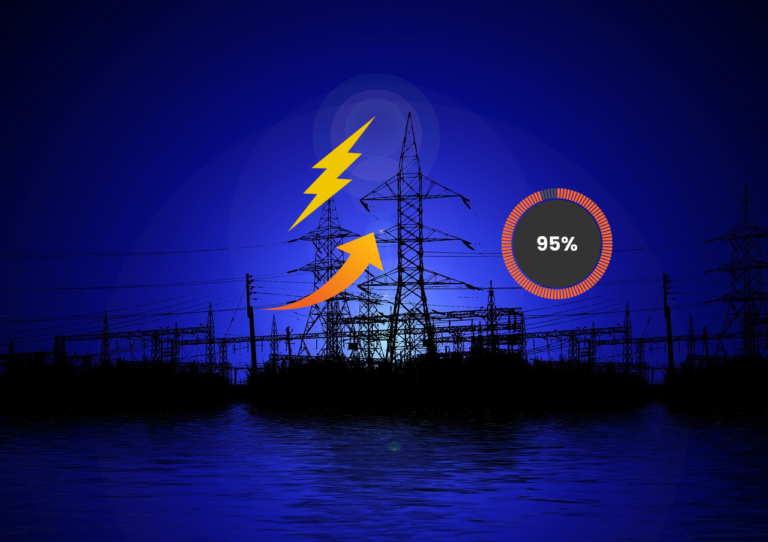The Impact of Bitcoin Mining on the Electrical Grid: A Balanced Perspective
Introduction
Bitcoin mining has become a topic of intense debate within the energy and utility industries. While concerns about its energy consumption are often debated, there are significant benefits that this activity can bring to the electrical grid. This blog aims to explore both sides, with a particular emphasis on the positive impacts of Bitcoin mining on the electrical grid, with a special focus on hydroelectric power.
Understanding Bitcoin Mining
Bitcoin mining is the process by which new bitcoins are created and transactions are verified and added to the blockchain. This process involves solving complex mathematical problems, which requires significant computational power and a substantial amount of electricity.
Energy Consumption and Grid Demand
Bitcoin mining operations are known for their high energy consumption. According to the Cambridge Bitcoin Electricity Consumption Index, the global Bitcoin network consumes an estimated 110 terawatt-hours per year, which is comparable to the annual energy consumption of countries like the Netherlands. This demand for electricity can put a strain on local grids, especially if the mining operations are concentrated in specific regions.
However, the story doesn’t end there. The high energy demand of Bitcoin mining can also drive several benefits for the electrical grid, especially when managed properly.
Benefits of Bitcoin Mining to the Electrical Grid
Grid Stabilization through Demand Response:
Bitcoin mining operations can provide grid operators with a flexible load that can be adjusted in real-time. During periods of low electricity demand, miners can ramp up their operations, absorbing excess generation and preventing wastage. Conversely, during peak demand periods, mining operations can be curtailed, providing a buffer that helps to stabilize the grid.
This demand response capability can be particularly valuable in regions with high penetration of intermittent renewable energy sources, such as wind and solar power. Bitcoin mining can help to smooth out the fluctuations in supply, enhancing grid reliability and resilience.
Economic Incentives for Renewable Energy Development:
Bitcoin miners often seek the lowest-cost electricity to maximize their profits. This has led to the establishment of mining operations in areas with abundant renewable energy resources, such as hydroelectric power in Iceland and Quebec, or solar and wind power in Texas and Kazakhstan.
By providing a steady and predictable demand for electricity, Bitcoin mining can make renewable energy projects more economically viable. This can spur further investment in renewable energy infrastructure, accelerating the transition to a greener energy mix.
Hydroelectric power, in particular, is well-suited for Bitcoin mining due to its low operating costs and high reliability. Regions with significant hydroelectric capacity, such as the Pacific Northwest in the United States and certain areas in Canada and Norway, have become attractive hubs for mining operations. This symbiotic relationship supports the growth of renewable energy and offers miners a stable, low-cost energy source.
Utilization of Stranded and Flared Gas:
In some regions, Bitcoin miners are partnering with oil and gas companies to utilize stranded or flared gas. Stranded gas is natural gas that cannot be economically transported to markets, while flared gas is gas that is burned off as a byproduct of oil extraction.
By converting this gas into electricity to power mining operations, these collaborations can reduce greenhouse gas emissions and provide a new revenue stream for energy producers. This not only benefits the environment but also enhances the overall efficiency of energy utilization.
Incentivizing Technological Advancements:
The competition to mine Bitcoin profitably drives technological advancements in energy efficiency. Miners constantly seek ways to reduce their energy costs, leading to innovations in hardware and cooling technologies. These advancements can have broader applications beyond mining, benefiting other industries that rely on high-performance computing.
Local Economic Benefits:
Bitcoin mining operations can bring significant economic benefits to local communities. They create jobs in areas such as construction, maintenance, and operations. Moreover, they can lead to increased investments in local infrastructure, including power generation and distribution facilities, which can have lasting positive impacts on the community.
Case Studies
Texas, USA:
Texas has become a hub for Bitcoin mining due to its deregulated energy market and abundant renewable energy resources. Miners in Texas have been instrumental in helping to stabilize the grid during periods of high demand, such as the winter storm in February 2021. By voluntarily reducing their power consumption, miners helped to prevent widespread blackouts and supported grid resilience.
Additionally, the state’s “Responsive Reserve Service” allows Bitcoin miners to get paid for shutting down during peak demand times, effectively turning them into a flexible resource that can be dispatched as needed.
Iceland:
Iceland’s abundant geothermal and hydroelectric power has made it an attractive location for Bitcoin mining. The country’s renewable energy resources provide a stable and sustainable source of electricity for mining operations. This symbiotic relationship has not only benefited miners but has also supported Iceland’s goal of becoming a carbon-neutral economy.
The cool climate also reduces the need for additional cooling of mining equipment, further enhancing the energy efficiency of operations.
Quebec, Canada:
Quebec boasts some of the lowest electricity rates in North America due to its vast hydroelectric resources. Bitcoin mining companies have flocked to this region, taking advantage of the inexpensive and renewable energy. This influx of mining operations has spurred economic development in the region, creating jobs and promoting further investment in hydroelectric infrastructure.
Challenges and Considerations
While the benefits are notable, it is essential to address the challenges associated with Bitcoin mining:
Environmental Concerns:
Despite the use of renewable energy, the overall environmental impact of Bitcoin mining remains significant. It is crucial to continue improving energy efficiency and increasing the proportion of renewable energy used in mining operations.
Regulatory and Policy Frameworks:
Governments and regulators need to develop frameworks that balance the growth of the cryptocurrency industry with sustainable energy practices. Policies should incentivize the use of renewables and support grid stability initiatives.
Public Perception:
The energy consumption of Bitcoin mining often attracts negative attention. Education and transparent communication about the benefits and efforts to minimize environmental impacts are essential to shaping public perception.
Conclusion
While the energy consumption of Bitcoin mining is a valid concern, it is important to recognize the potential benefits that this activity can bring to the electrical grid. By providing demand response capabilities, supporting renewable energy development, and utilizing stranded gas resources, Bitcoin mining can play a positive role in enhancing grid stability and promoting a more sustainable energy future.
Hydroelectric power, in particular, offers a promising synergy with Bitcoin mining, providing a reliable and low-cost energy source that can support the growth of renewable energy infrastructure. As the industry evolves, ongoing collaboration between miners, grid operators, and policymakers will be crucial to maximizing these benefits and addressing any challenges. With thoughtful management and innovation, Bitcoin mining can be a valuable partner in the journey toward a resilient and sustainable electrical grid.
References and Further Reading
Cambridge Bitcoin Electricity Consumption Index
By understanding and leveraging the benefits of Bitcoin mining, we can pave the way for a more efficient and sustainable energy landscape.



